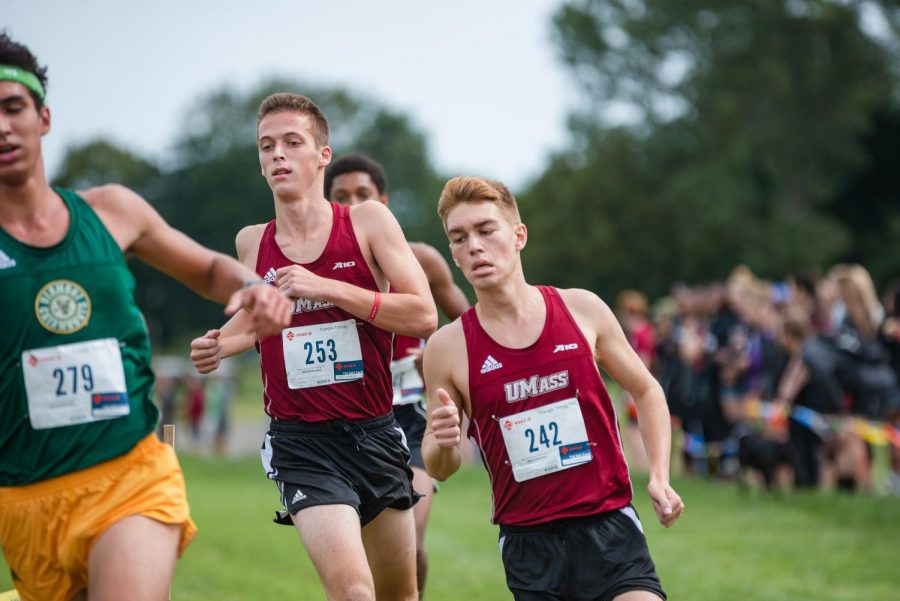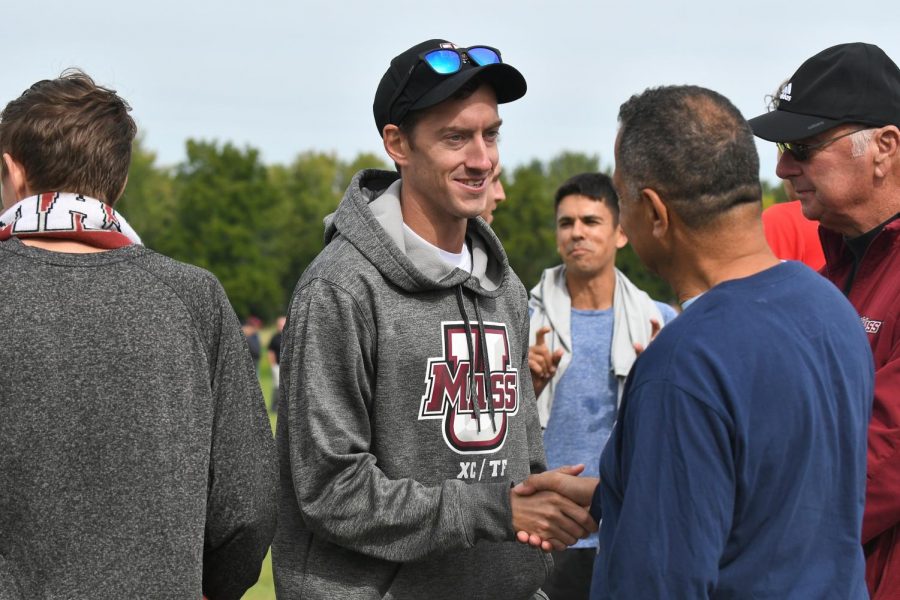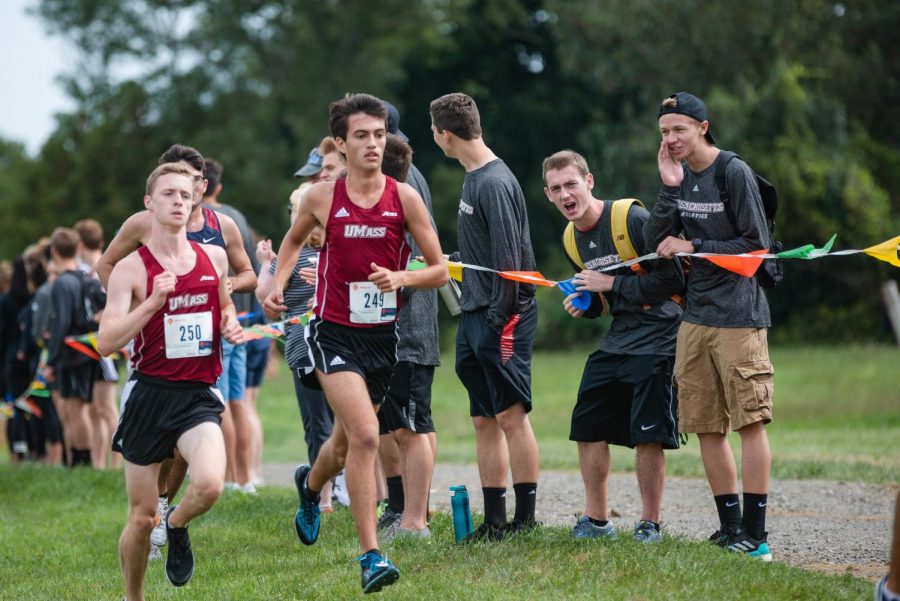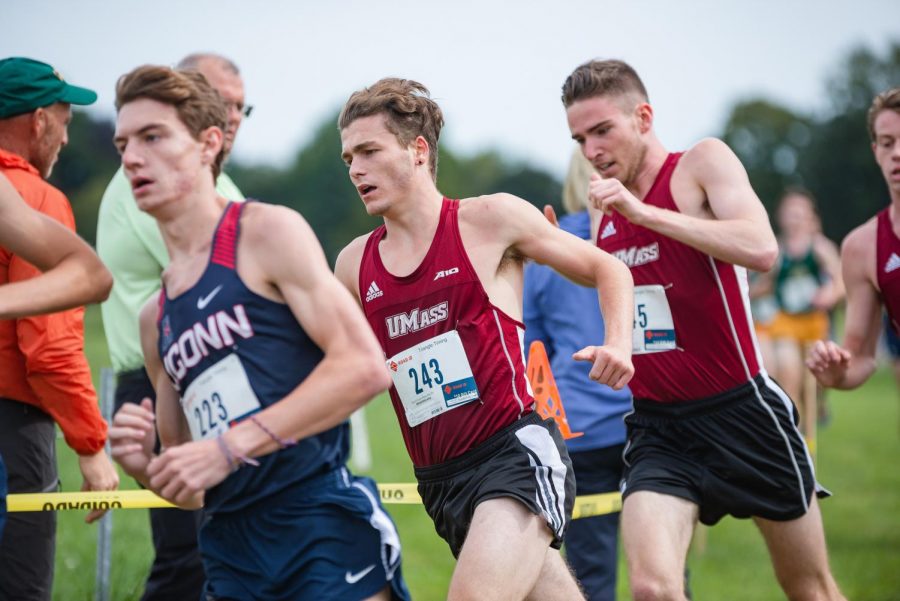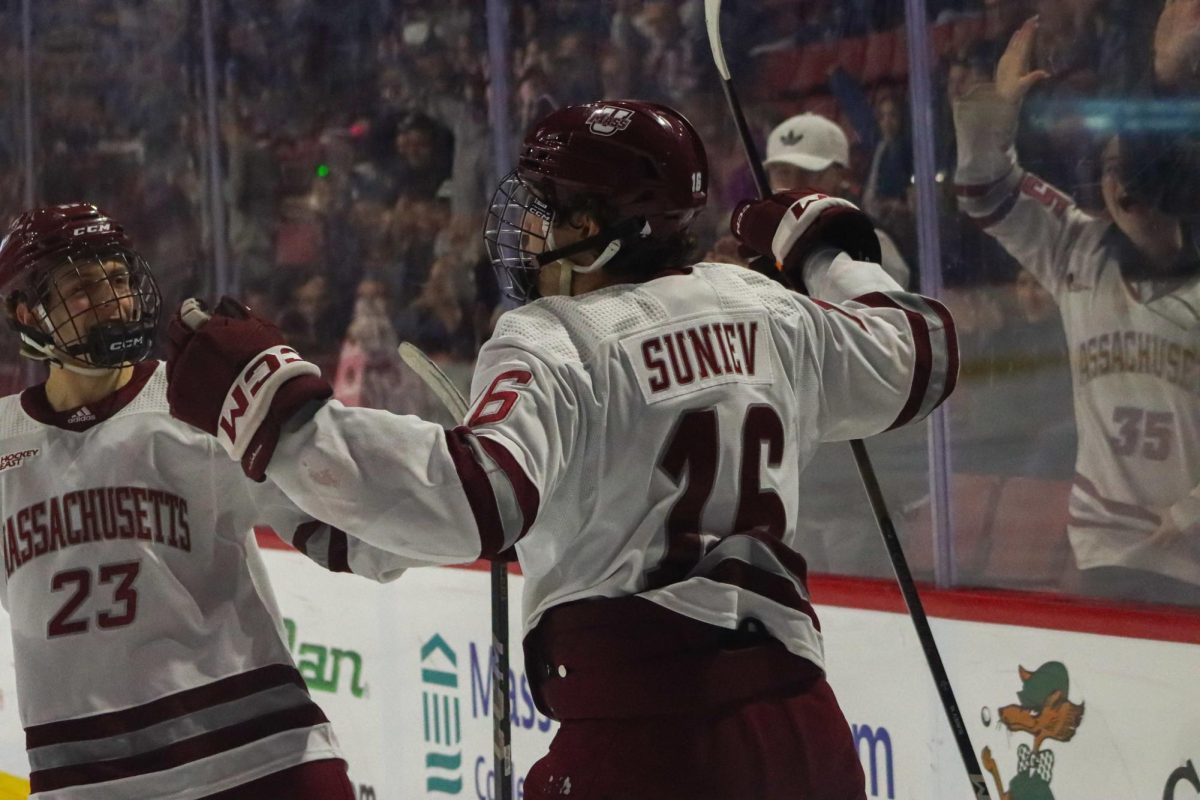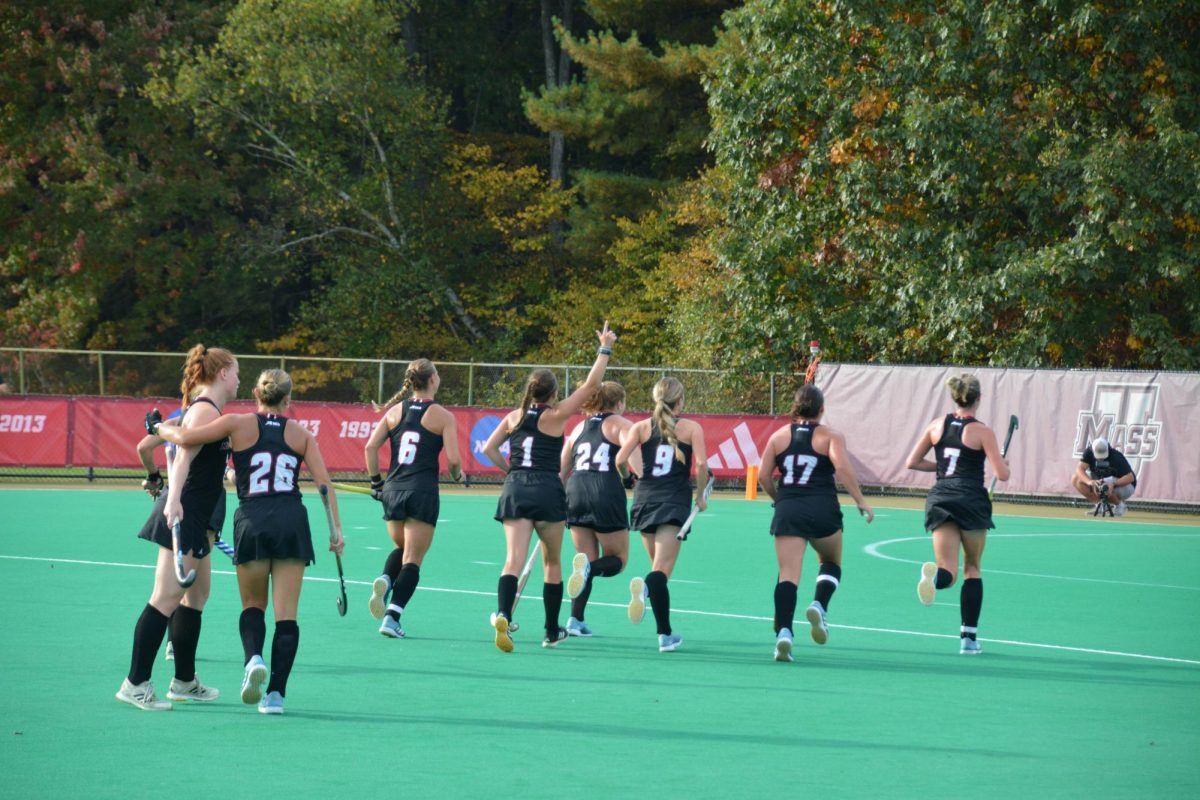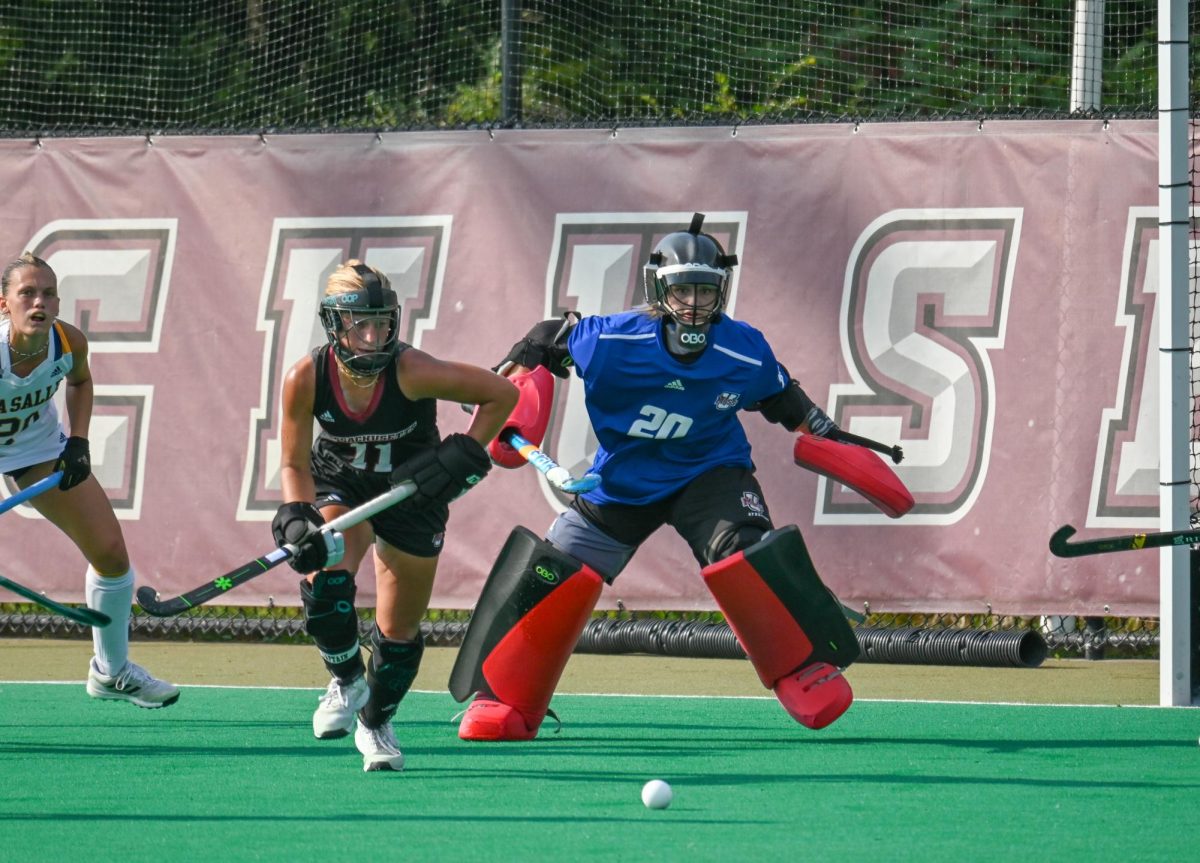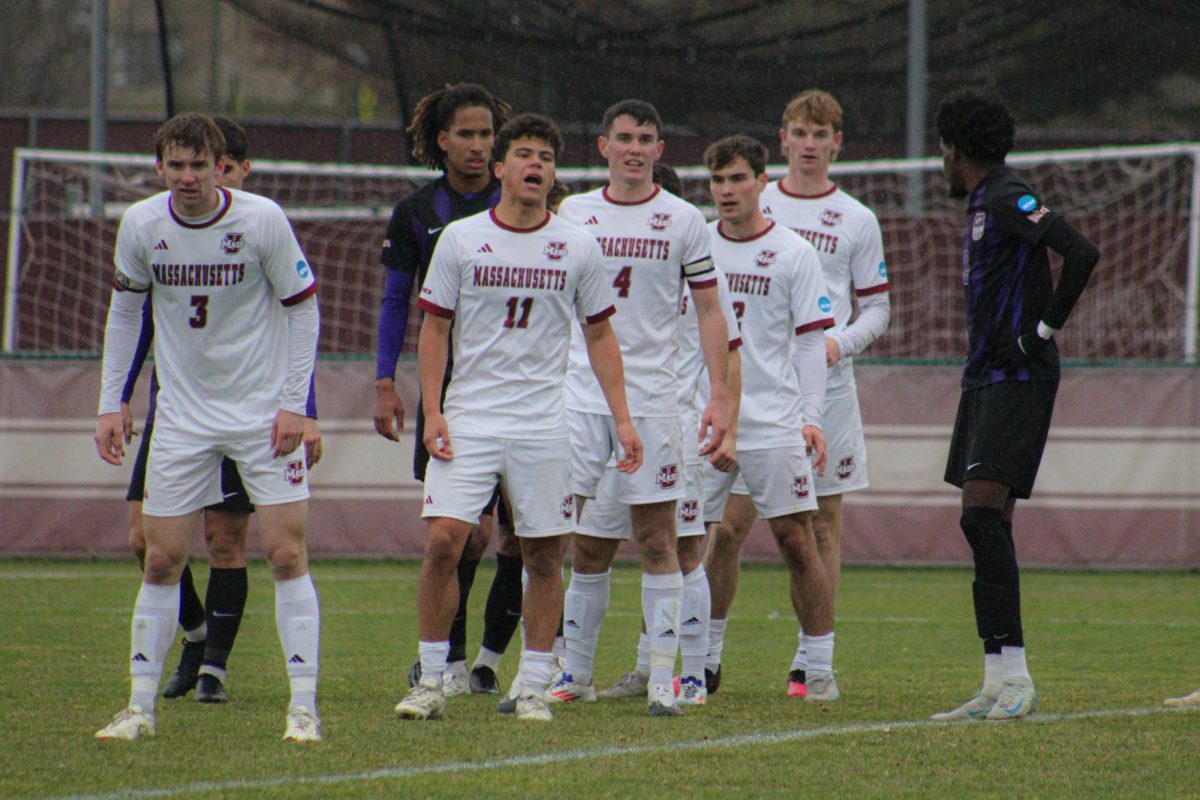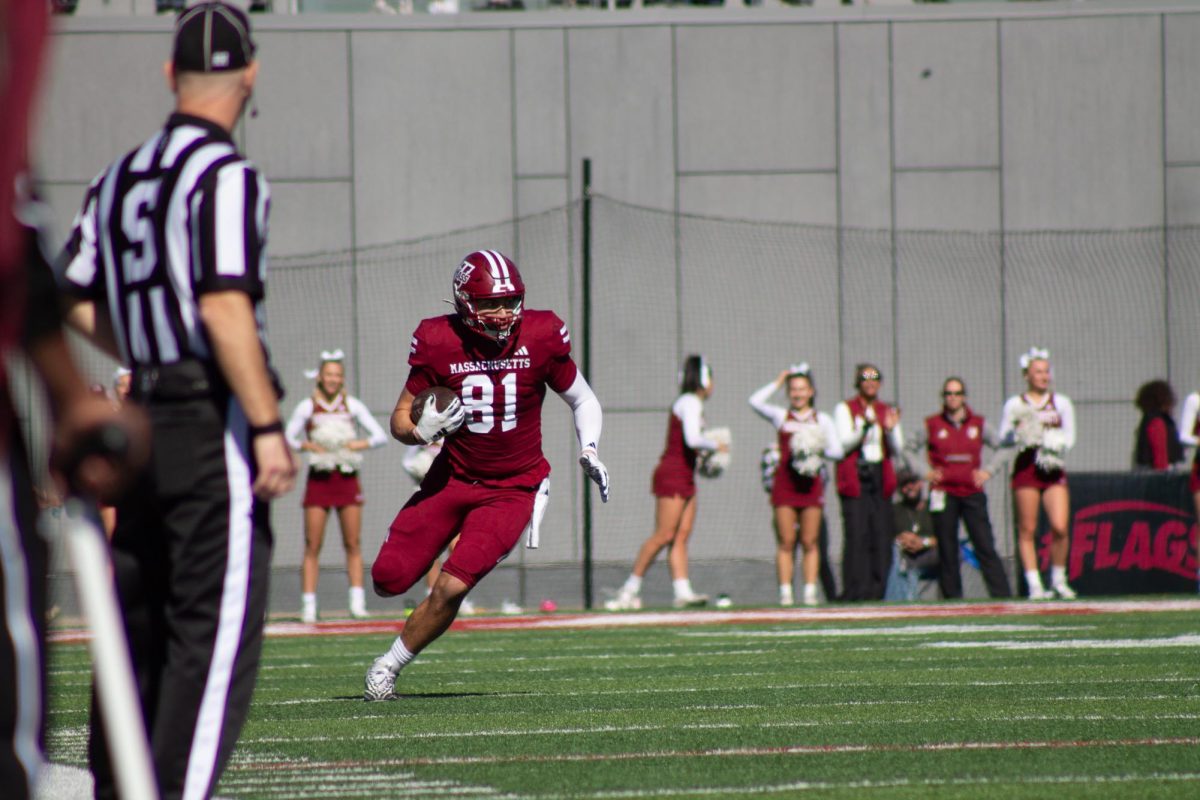Behind the success, the struggle and the triumph of an athlete there is usually something or someone in the background driving that person forward.
To the athlete, that person is nowhere near the background. In many ways, they are at the forefront, even if they aren’t physically with that person.
Senior Massachusetts cross-country and track and field runner, Sean Duncan, was never pigeon-holed as only a runner. Growing up, he played other sports like soccer and baseball as well.
When Duncan got to middle school, though, he realized that running was his athletic strength. When that happened, a certain member of the family got excited.
Sean’s grandfather, Don Duncan, had been a long-time teacher as well as a cross-country and track and field coach at Weston High School in Massachusetts. A man who never competed as a runner, but as a soccer player at Fitchburg State, coached the Wildcats to a victory at the state meet in 1989, the same year Sean was born.
That win came only a year after Don was inducted into the Massachusetts State Track Coaches Association Hall of Fame.
Don’s brother, Robert Duncan, received the same honor in 1989. He coached at Gardner High School, Sean’s hometown, some 50 miles southeast of Weston.
Needless to say, running was in the family.
So when it became apparent that Sean was going to take running seriously, Don was going to be there for him in some capacity.
“He was kind of excited,” Duncan said. “He would always give me little tips. He used to pump me up in that if I did have questions I could just call my grandfather and ask him and I’d probably get a pretty good sense of what was going on.”
In summer training when Duncan wasn’t running for the Wildcats of Gardner High, coach Ken Pelletier could not coach his runners due to Massachusetts Interscholastic Athletic Association rules.
Those rules did not seem to bother Duncan, though. After all, he did have a hall of fame grandfather at his full disposal.
“I could just go to my grandfather and be like ‘What should I do for a workout?’ Or he would come to the track and he would do workouts,” Duncan said.
Duncan added that the advice that he would get from his grandfather was an advantage, but not always in the technical sense.
“I think the advantage was more mental knowing that I had that kind of support at my disposal,” Duncan said. “I think some of the tips he gave me running sure helped, but it was more he let me develop. He would reinforce exactly what I was learning.”
In the summer of 2005 Duncan noticed a significant amount of pain in his left foot. For about a month and a half, doctors struggled to figure out what was wrong with it.
In late October of that year, Duncan was diagnosed with a broken left navicular bone, almost collapsing the arch in his foot.
The doctor who made the diagnosis said that it may be a good idea to start thinking about taking up a different sport.
That didn’t happen, though.
For eight long months, Duncan rehabilitated on the bike and in the pool.
During that time, Sean’s grandfather would tell him not to worry about the long lay-off. Eight months is a long time for a runner to be out, but Don told Sean that he’s had years of running to work with. If Sean wanted to get back to where he was, he would get there. The rehabilitation would just have to take strong mental fortitude.
Duncan said that during the time he had to rehabilitate, he started to appreciate the sport that much more. For him, running is that release from the outside world, something he can go to for relief.
“I really love running. It’s my outlet for stress,” Duncan said.
After all of the rehabilitation, Duncan arrived at Gardner High for his senior year of high school. He was nowhere near the runner he was before.
After a couple of months of trying to recapture the success he had, Duncan reached his final home dual meet of his senior season.
While all of this was going on, Sean’s grandfather was struggling with cancer and the disease had spread to his brain. The entire Duncan family knew that his passing could arrive at any time.
For the longest time, Don had been the rock, the foundation and the patriarch of the family. He was always there for everyone. He attended all of his grandchildren’s sporting events throughout their respective childhoods.
Of course, with running being the connection, Sean’s athletic pursuits in particular were of great interest to Don.
“I think he really enjoyed watching me run because without saying anything I picked up running, I liked running and I had success with running,” Duncan said.
Throughout his coaching career, Don had seen hundreds upon hundreds of kids go through the high school running experience.
“To see a kid that was related to him, he was really, really excited about it because I was really gung-ho about running,” Duncan said. “I loved putting in all the hard work and he’d give me as much hard work as I could handle.”
In his final home dual meet of his senior year, Duncan put forth his best effort since he had come back from the injury.
He had won the race and felt as though that he was back to his pre-injury form.
When he crossed the finish line, though, Sean was greeted by his father, who was visibly upset.
Sean’s father had received a phone call telling him his grandfather had passed away just before the gun went off.
“Things can happen and they affect you negatively and for me, it was more one of those things where it affected me positively,” Duncan said. “I didn’t think ‘oh, my grandfather’s dead, I don’t have this in my life anymore.’ I figured he’s gone, he’s given me as much as he can.”
Not much time would pass before Sean would be tested again. The district meet, which was held at a different course in Gardner, was the following week.
“The one thing that he would want is for me to be really focused and run my [butt] off and run the way I am capable of,” Duncan said. “I had no business belonging in the top 10, like maybe getting eighth, ninth, 10th.”
No one would have been disappointed in one of those finishes for Sean. With just coming off of the injury and his grandfather’s death, family and friends were going to support him no matter what.
The only one who wasn’t going to accept a finish like that was Sean.
“I had had a heck of an advantage by having all these really good coaches,” Duncan said. “There’s no excuse for me to get ninth or tenth. I can win this thing. I got on the line going ‘I’m going to win. That’s the way my grandfather coached.’ I was taught to be like that.”
“I put that race to my grandfather,” Duncan said. “My grandfather deserved one where I just got out and ran the way I’m supposed to run.”
Sean didn’t win, but took second.
“It’s a pretty powerful thing when you have someone that means a lot to you and then you step on that line and it’s crunch time, do or die,” Duncan said. “Failure, or not running above and beyond that day, wasn’t really an option.”
Duncan believes that that race in particular is what made running at UMass more likely.
Duncan always wanted to run Division I and when he was given the opportunity to take a spot on the fall roster in 2007 he jumped to it.
When Duncan got to UMass, he quickly realized just how difficult it would be.
While the new surroundings and challenges at UMass were tough to bear, one aspect where Duncan didn’t have to do a lot of adjusting was dealing with the coaching.
Duncan said that O’Brien and his grandfather, because of being around the same age and coaching for about the same amount of years, were actually quite similar in their coaching styles.
Because of his experience, Duncan said that O’Brien is great at figuring out how to motivate different runners. It was the same with his grandfather. He knew exactly what the kids were looking for from the coach.
It helped Duncan’s comfort level and confidence level to know that there were people similar to his grandfather around to help him become the runner he wanted to be.
As important as the coaches are, Duncan made it clear that above all, his teammates are the ones that do the most to motivate him day in and day out.
“You see those guys getting better and you run with them every single day. And it’s hard to not believe that you’re getting better to,” Duncan said.
November 6th will mark four years to the day that Sean lost his grandfather.
Although Sean is out right now with a stress fracture in his kneecap, he still acknowledges his grandfather’s impact on his running.
“He’s always there,” Duncan said. “When I’m hurting, that part of the race. In the back of my mind when I’m really hurting I can hear him. When [I’m] out in the woods by yourself working with your teammates he’ll pop into my head.”
And if there’s one thing Sean will always hold onto, it’s a state championship pendant his grandfather gave him some years ago.
He won it the year Sean came into the world.
From the sound of things, Sean will cherish it until the day he leaves it.
Eric Mansfield can be reached at [email protected].

